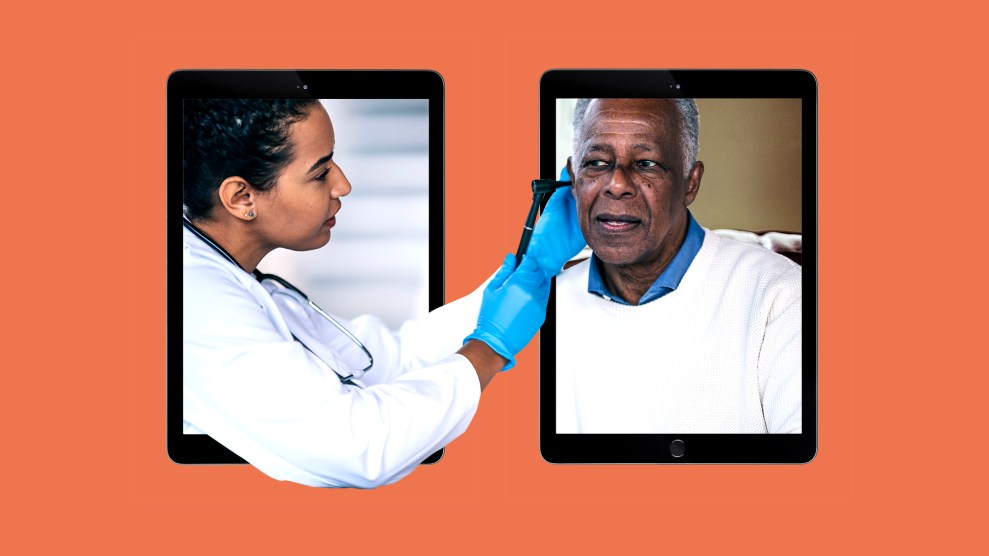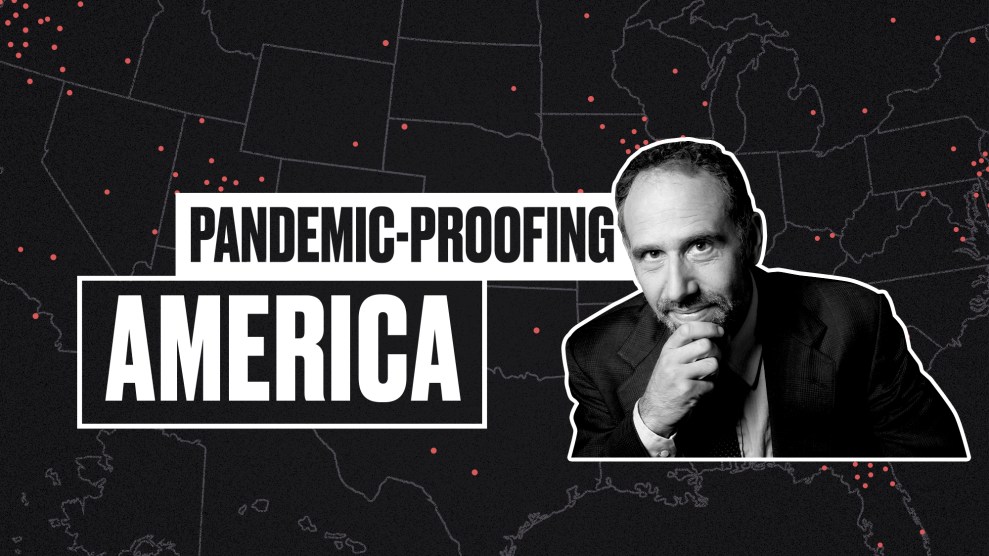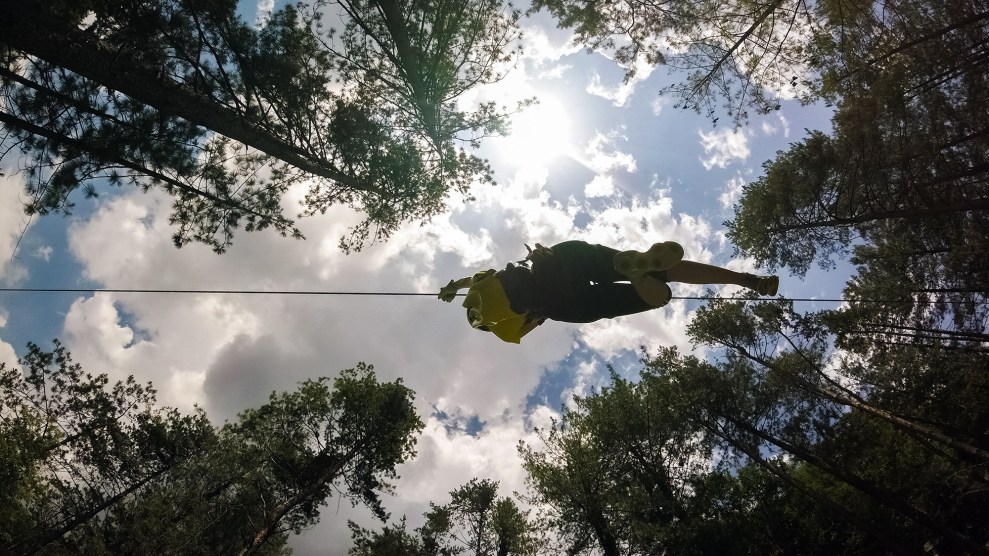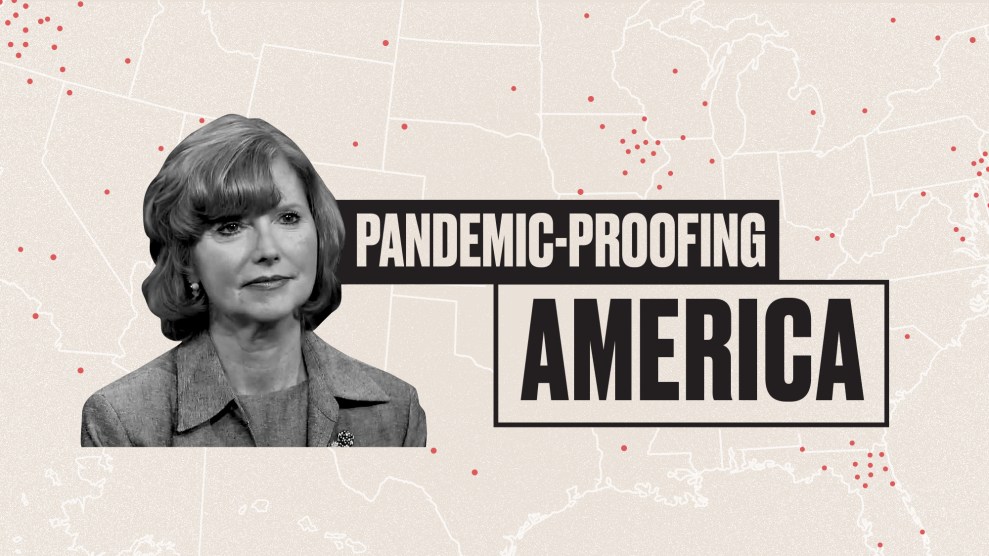
Mother Jones illustration; Getty
Andrea Guzman
Over the past year, health care has gone through a digital revolution: As the pandemic intensified, more and more providers switched from in-person visits to telehealth appointments over video chat. In April 2020, telemedicine services increased by more than 4,000 percent, and nearly half of all consultation visits were delivered virtually. For many, this was a welcome change. Virtual visits prevented potential COVID-19 exposure and saved others—especially those in rural areas—from a long commute to the doctor’s office.
The increase in telehealth was driven in part by the public health emergency that went into effect in January 2020. Through it, beginning in March, Medicare was permitted to pay providers the same for virtual visits as in-person ones, and many private insurers followed suit. While the public health emergency has been extended through late July and the Department of Health and Human Services has indicated it will remain through year’s end, keeping these rules permanently would take an act of Congress. Without action, Medicare beneficiaries who have had their virtual care covered could lose it in what some experts have dubbed a “telehealth cliff.”
Take Central City Concern, a nonprofit in Portland that provides services to unhoused people. Last fall, the group set up private suites in their buildings where clients could access telehealth services—like substance abuse recovery and mental health groups—on a donated tablet. Thanks to an emergency order, the virtual appointments were covered by Medicare and Medicaid.
What was meant to be a temporary solution worked surprisingly well, at least once they tackled tech barriers. Jack Keegan, director of nursing at Central City Concern, said some clients relied on their own devices before the suites launched. For people without smartphones or data plans to support these services, virtual care was out of reach before the suites arrived.
Post-pandemic, Keegan predicts many clients will prefer to return to face-to-face services. Yet he says in some cases, virtual visits would make it easier for his clients to access health care. For instance, lack of transportation could stand in the way of someone making their appointment, but that concern goes away with virtual meetings.
Kyle Zebley, director of public policy at the nonprofit American Telehealth Association, watched this play out during the early months of the pandemic. Telehealth “was doing everything that proponents of the industry said it could do, but for a variety of reasons had not been able to do prior to the pandemic.”
In April, lawmakers introduced a bill aimed at saving telehealth. The CONNECT for Health Act was reintroduced by Sen. Brian Schatz (D-Hawaii) and a handful of others. If enacted, it would make COVID-19 telehealth flexibilities permanent and expand coverage of telehealth through Medicare. While it’s died in previous congresses, Zebley said this time around, the fact that half of the senators are co-sponsors is a hopeful sign.
Numerous states have passed or are considering bills to strengthen telehealth access. In Oregon, Central City Concern and the ATA testified in favor of a bill that would reimburse health services delivered via telemedicine at the same rate as a health service delivered in person. In the South, which along with rural communities disproportionately faces challenges to telehealth access, Arkansas passed a law that permanently establishes telemedicine rules that had been put in place during the pandemic.
The pandemic has flipped the switch for patients who had grown accustomed to traditional doctor’s visits, Keegan said. But now that many people have tried out virtual care, some might be reluctant to give it up. “Forcing clients, either because that was all that was offered or because of their own fear in medical spaces, caused them to try a telehealth appointment,” Keegan said. “You’re not going to be able to put that back in the box.”











